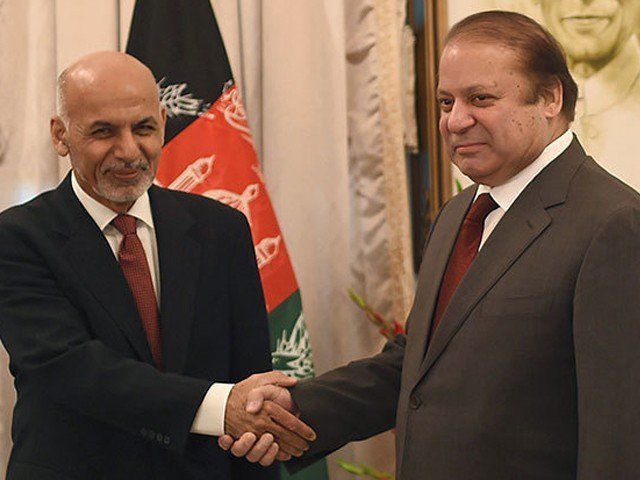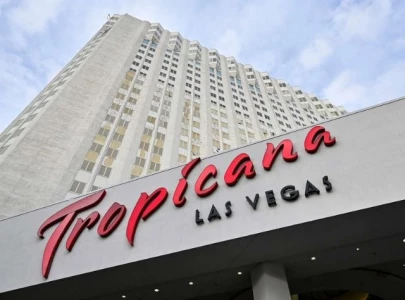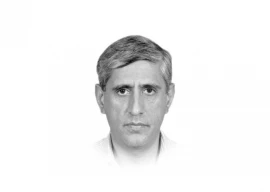
Other tensions at the dialogue included prominent Pakistani delegate and MNA Shazia Marri’s complaint of mistreatment at Kabul’s Hamid Karzai International Airport.
“The immigration officials stopped me from leaving the airport for nearly 25 minutes although I have an official passport,” Marri said. “I was initially told that I do not have a valid multiple entry visa and later immigration officials pointed the words “multiple visa is handwritten,” she disclosed at the dialogue in the presence of Afghan delegates. They included former Afghan military chief General Sher Mohammad Karimi.
The MNA said she would never mention the incident at an unofficial dialogue, but wanted to highlight the manner in which political differences affect the public.
It was unfortunate that a Pakistani member of the Parliament was bothered due to a mistake by Islamabad’s Afghan Embassy visa section and its handwriting.
Marri was allowed to leave the airport after one of the Afghan hosts arrived to receive her.
The most Afghan delegate Ahmad Saeedi did was apologise for the incident, but did not seem pushed to bring up the matter with Afghanistan Deputy Foreign Minister Hekmat Karzai.
Meanwhile, the outrage against Pakistan in the Afghan media is also apparent as the critical goodwill gesture by Pakistan to ease bilateral relations is often ignored.
The media of the neighbouring country closely monitors its Pakistani counterparts and regularly uses news items. However, it is baffling that the stories picked by them are not even of Afghan interest.
A recent item was about Pakistan Army’s chief, General Raheel Sharif’s, visit to enquire after an injured Afghan soldier rescued by troops from across the border after having been hit by militants on his own side of the Durand Line. General Raheel also ordered special treatment for Afghan border policeman Alam Zeb at a military hospital in Peshawar.
Meanwhile, a media colleague was keen to show to his Pakistani audience that the situation in the bustling city of Kabul was not as bad as projected in the press.
However, Afghan security personnel, without providing a reason, stopped him from filming even a book shop in the city after our colleague identified himself as a Pakistani TV journalist. Local media personnel have been advised by their peers not to identify themselves as Pakistani citizens while venturing onto the streets of Kabul.
At the aforementioned dialogue, Hekmat acknowledged that Pakistan’s image in Afghanistan is “negative”, but argued it has a “history” and “we should all try to address the causes”. A Pakistani asked him about steps taken by the Afghan government to ease public anger.
“We need those policies to change which have caused destruction in the past decades and continue to do so,” the Afghan deputy foreign minister said.
“Changing these perceptions is going to be a difficult and a complicated process which we need to tackle slowly and gradually,” he replied when asked whether the Afghan government was making efforts to help improve the narrative on Pakistan in the Afghan media. However, he underlined Pakistan’s role in the expected Afghan peace process could improve the relationship.
“It will also depend on how and whether Pakistan delivers on commitments it has made to the peace process and counter-terrorism [strategy] in Afghanistan in the weeks and months to come,” Hekmat said.
It would be a journalistic dishonesty if I do not point the recent and highly publicised kidnapping of a prominent former Afghan governor, Sayed Fazalullah Wahidi, from Islamabad’s busy marketplace in F-7 sector.
Every Afghan we met, including Hekmat, referred to last month’s incident to which no Pakistani had a concrete answer. Kabul had summoned the Pakistan ambassador in Kabul to the foreign ministry. President Ghani had also spoken on the kidnapping, but no Pakistani authority commented on the matter officially till the subject was handed over to the Afghan Consulate in Peshawar two weeks after the incident.
No one can justify such incidents which cause serious damage to the relationship and create mistrust among the people.
Published in The Express Tribune, March 5th, 2016.

1725516862-0/kamala-(4)1725516862-0-165x106.webp)

1728372476-0/BeFunky-collage-(33)1728372476-0-165x106.webp)







COMMENTS
Comments are moderated and generally will be posted if they are on-topic and not abusive.
For more information, please see our Comments FAQ